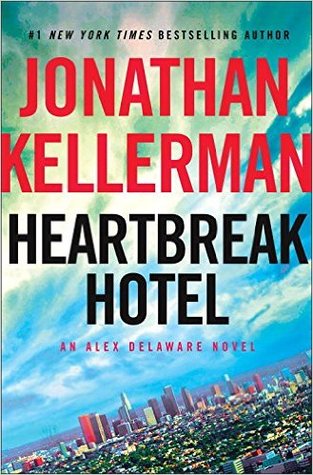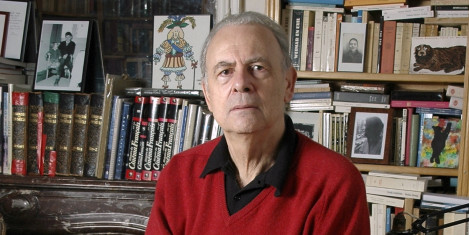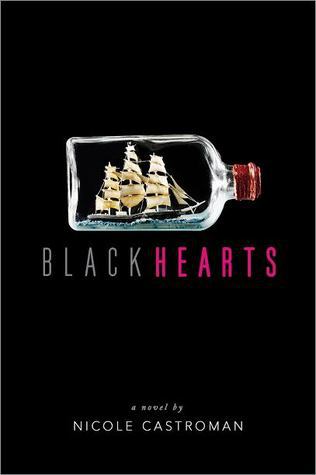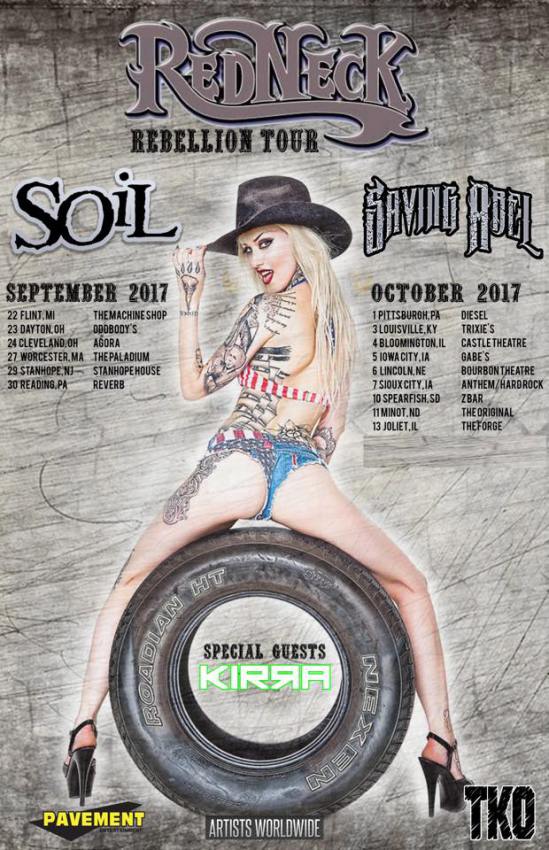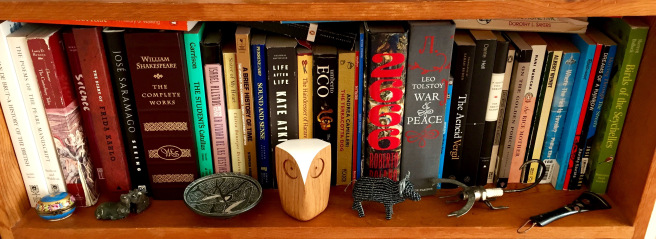Today on Heart Full of Books, we have the pleasure of hosting a spot on the Things A Bright Girl Can Do blog tour. If you haven’t heard of TABGCD, we’ll give you all you need to know: it follows three girls and their fight for women’s votes. They come from vastly different economic backgrounds, and two of them even fall in love. Gay Suffragettes, I mean, come on? Do you really need to hear anymore? If that still hasn’t convinced you to check it out, then know that Louise O’Neill (as in Louise O’Neill, author of deeply feminist and totally kick-ass Asking For It and Only Ever Yours) is calling it:
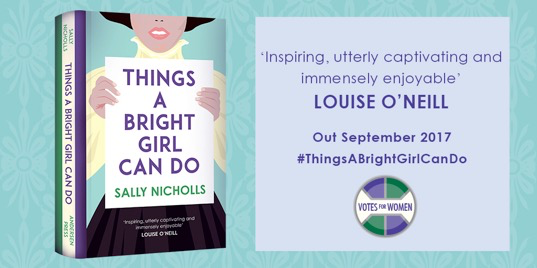
Now, you’re all caught up, Sally Nicholls has some writing advice to share!
Sally: Most of these tips are very boring – you’ve probably heard them a thousand times before. That’s because the business of writing a book is boring. If anyone has ever told you to only write the book you NEED to write or if it’s hard, you’re doing it wrong, then those people don’t know the first thing about writing. Writing fiction is like any other long project; a report, a dissertation, a house refurnishment, a revolution. It takes a long time. Sometimes it’s boring. Sometimes it’s frustrating. Sometimes you hate it. I tell kids in schools it’s like doing the same piece of English homework every day for a year. Because sometimes it is.
Writers don’t own time-turners. I know, gutting right? But they don’t. Writers have families, and jobs, and elderly parents, and social lives, and partners, just like you do. I’ve lost count of the number of people who tell me they don’t have time to write, and it always makes me want to shake them. Do you have time to see your friends and partner? Read books? Watch television? Surf the internet? Cook dinner? Then you have time to write. Neil Gaiman famously wrote Coraline in fifty-word chunks in the time he would otherwise have spent reading before bed. I have a friend who wrote her first novel while at home with two small children, on the basis that she was going to be this busy for the foreseeable future, so she had to do it now or never.
Make writing one of the most important things in your life. I’m not saying it has to be the most important thing, but it should definitely make your top three. When you have a spare half an hour, writing should be a very strong contender for what goes there. I like to blame writing for my messy house and unwashed dishes, but let’s be honest – I was messy long before I was a writer. I just have an excuse now.
Read. This should be obvious, but it isn’t. Read lots. Read widely, read genres you wouldn’t usually read, definitely read the genre you want to write. If you want to write horror films and television, watch horror films and television. If you want to write poetry, read poetry. It all goes in, and it all comes out somewhere.
Write what you love. Not all science fiction writers have gone to space, but they all love the idea of space. Write about the things that get you fired up with excitement, and they’ll get your readers fired up too.
Follow the market, but don’t be lead by it. It’s a good idea to stay current in the area you’re trying to write, partly so you can get excited by all the great stuff that’s being written, but also because crime editors really, really don’t want any more dull Agatha Christie rewrites, and children’s books have moved on somewhat from Enid Blyton. Also because when your weird obsession suddenly becomes popular, you want to know about it. On the other hand, don’t write something just because it’s currently popular. See 4.
Hate your books. Seriously. If you don’t hate something, how will you ever spend the months and months (oh, god, the months) editing it? If you can’t see all its flaws, how will you fix them?
Love your books. Every author secretly thinks this one is going to be The One. Why? Because why else would they ever spend the months and months (seriously, the months) writing a first draft.
An idea is not the same thing as a plot. Again, not always obvious, but it should be remembered. In a hole in a ground there lived a hobbit is an idea. Not a plot. And a wizard dragged him off on an adventure to rescue a treasure from a dragon? That’s a plot. Once there was a boy who didn’t know he was a wizard? Idea. And he had to defeat the greatest dark lord the world has ever known? Plot. Make sure you have both before you start writing, or you’ll get stuck halfway through chapter one.
The ability to string together a decent sentence is a tiny, tiny part of what is needed to be a professional writer. There are a lot of people in the world who were good at English as kids. Probably a couple in every class in the country. Most of them aren’t professional writers. It actually isn’t that difficult to write a competent paragraph. Plot, story, character, pacing … these are all much harder. And harder still …
Be a professional. Put in the legwork. Research publishers and agents. Read their submissions guidelines. Write professional-sounding covering letters and synopses. Send the submission to every agent in the yearbook. And when they all turn you down? Get started on the next thing and do the same again.
Good luck!
Advertisements
Share this:
Like this:Like Loading...
Related

